

It dates back to the stone age and forms one of the earliest human settlements in Italy - and is still inhabited.
Looking like a scene from the Flintstones cartoon, Sassi di Matera, which teeters on the edge of a steep ravine in the country's south, dates back 9,000 years and is believed to be the oldest continuously inhabited cave city in the world.
The Unesco-protected Sassi district is part of Matera city and has been carved into the rock of a towering gorge that was formed by a large river.
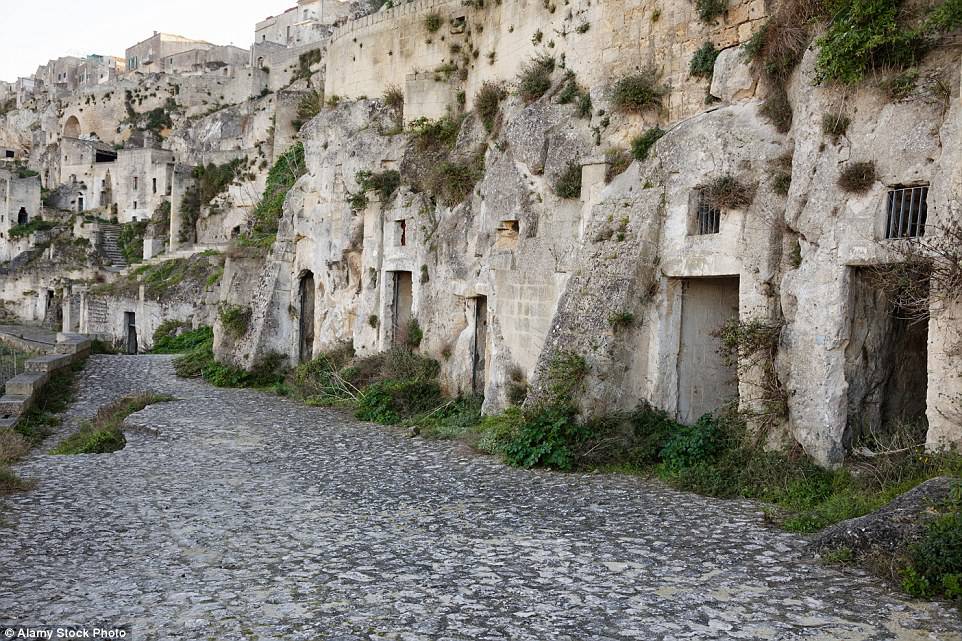
Looking like a scene from the Flintstones cartoon, Sassi di Matera, which teeters on the edge of a steep ravine in Italy's south, dates back 9,000 years
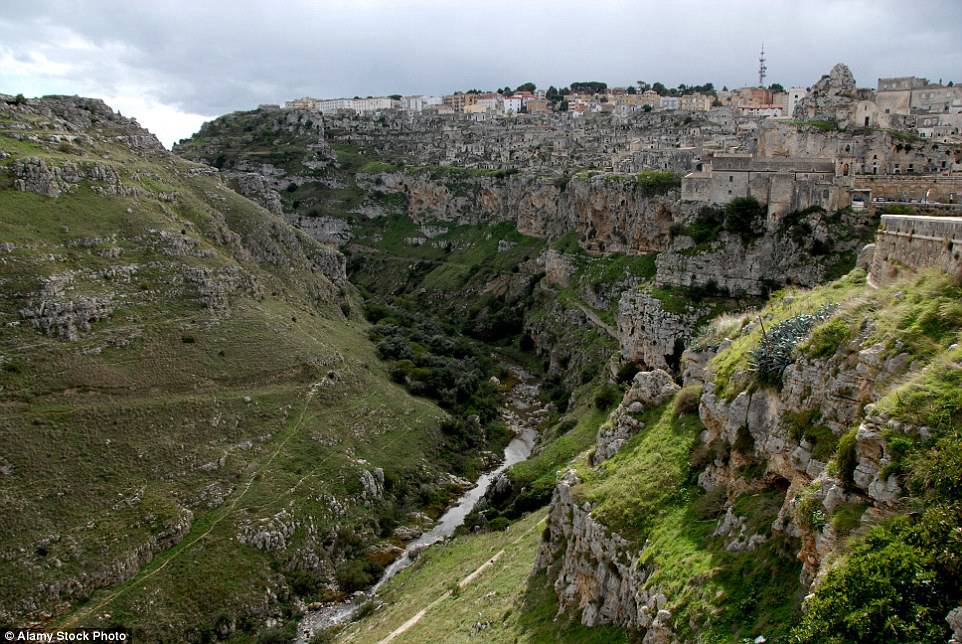
Sassi di Matera is believed to be the oldest continuously inhabited cave city in the world
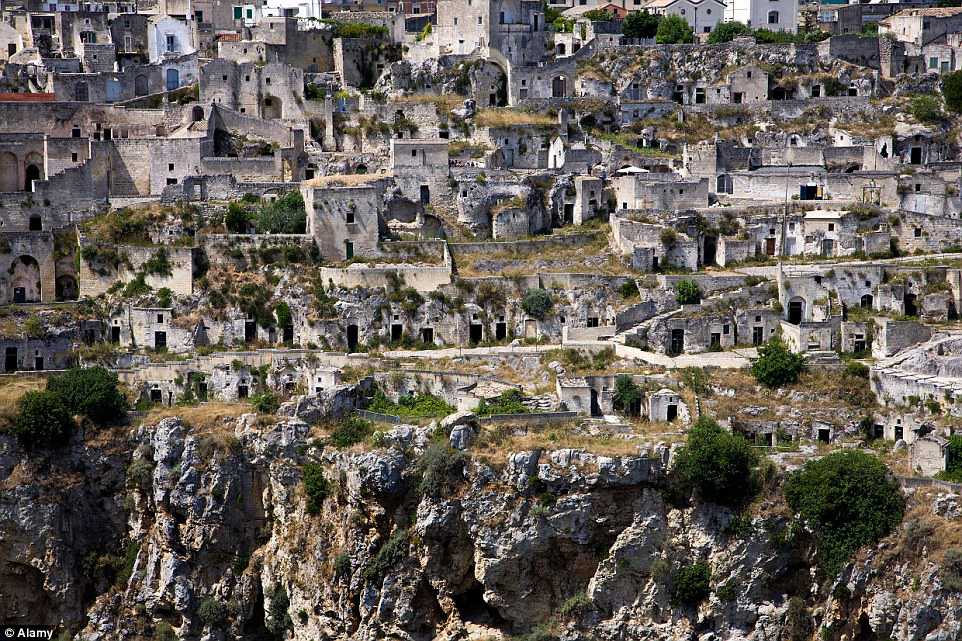
Haunting and spellbinding, the natural caves and churches are Unesco protected
At first glance the Sassi sprawl appears as a jumble of stone huts that seamlessly merge with the stunning landscape - but behind the picturesque dwellings are tales of struggle.
Until the late 20th century people living there had no access to running water and there was a lack of electricity or proper sewage facilities.
Dwellers took advantage of every bit of rock they could and many of the layered homes feature labyrinthine alleys and stairways.
Over the years new holes were continuously carved out to make room for the ever-increasing population but inhabitants desperately needed basic supplies as there were no shops within easy access.
Families would live among their animals, diets were simple and disease was rife, with malaria a prominent threat.
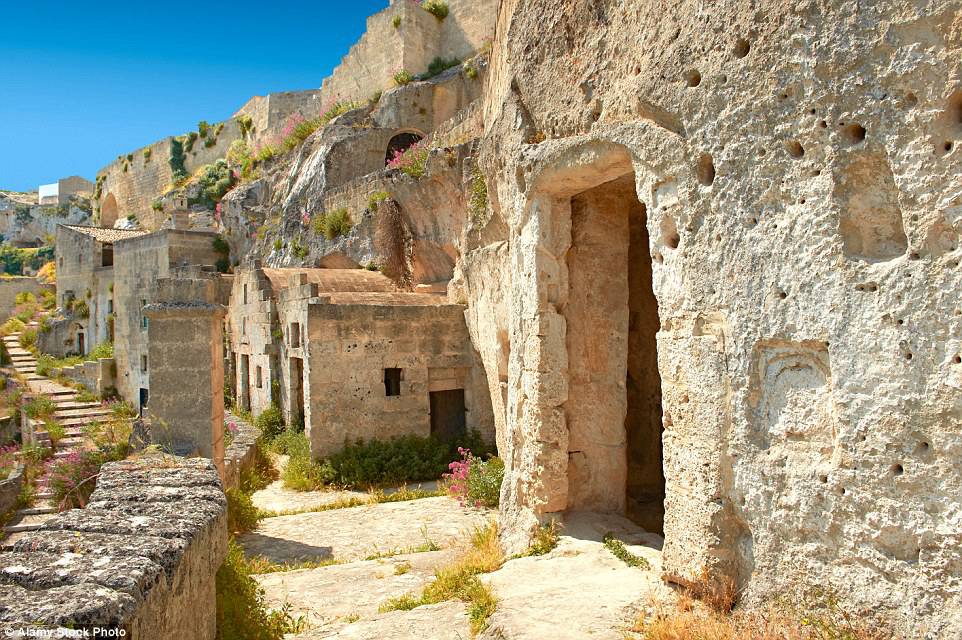
Dwellers took advantage of every bit of rock and space they could and many of the homes feature labyrinthine alleys and stairways
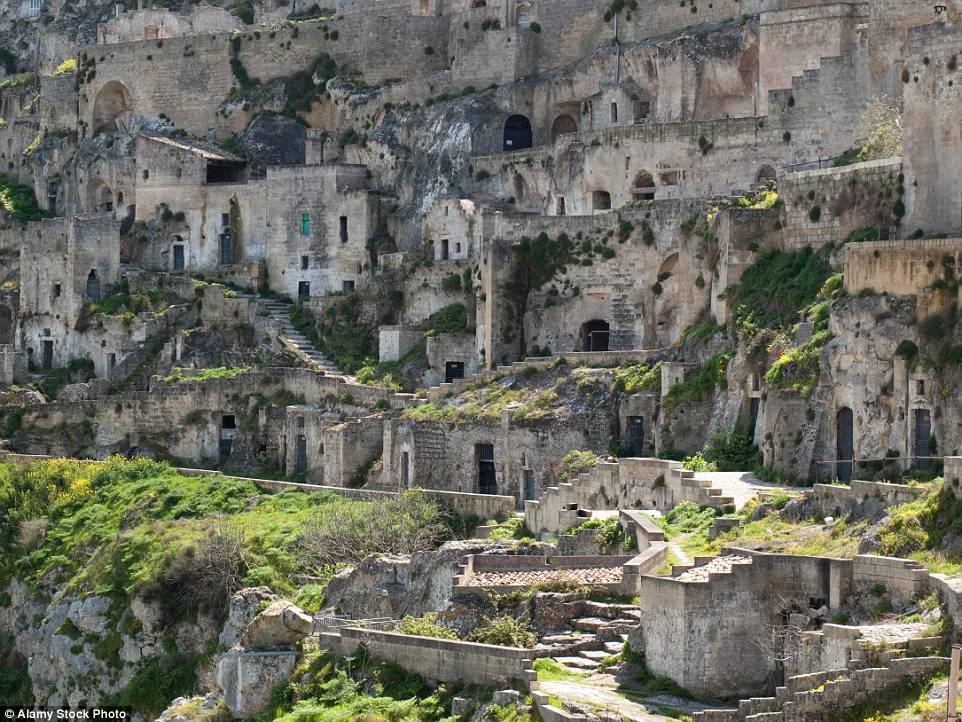
At a first glance the Sassi sprawl appears as a jumble of stone huts which seamlessly merge with the stunning landscape - but behind the picturesque dwellings are tales of struggle
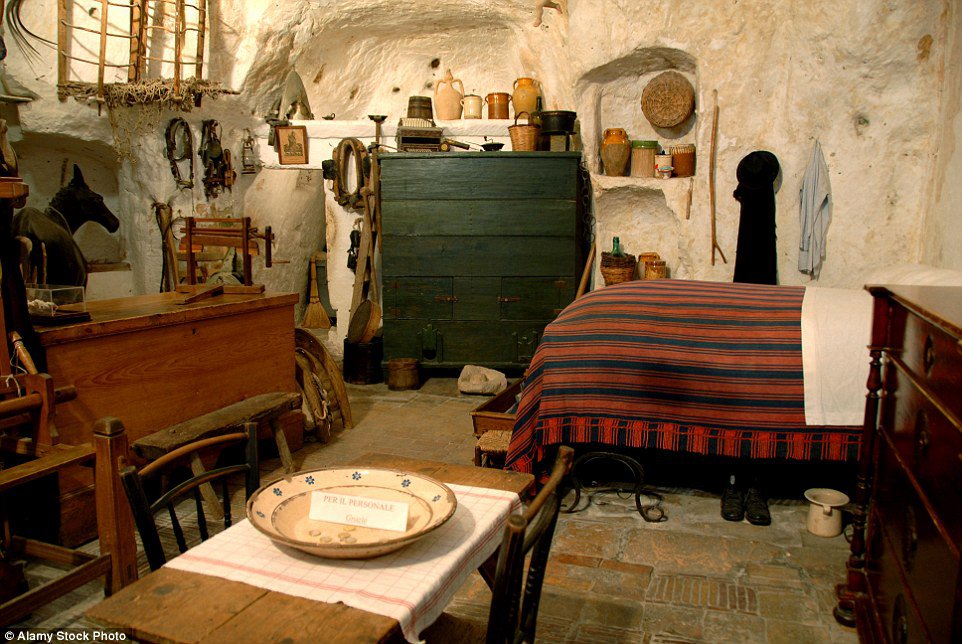
Until the later part of the 20th century the homes had no access to running water and there was a lack or electricity or proper sewage facilities
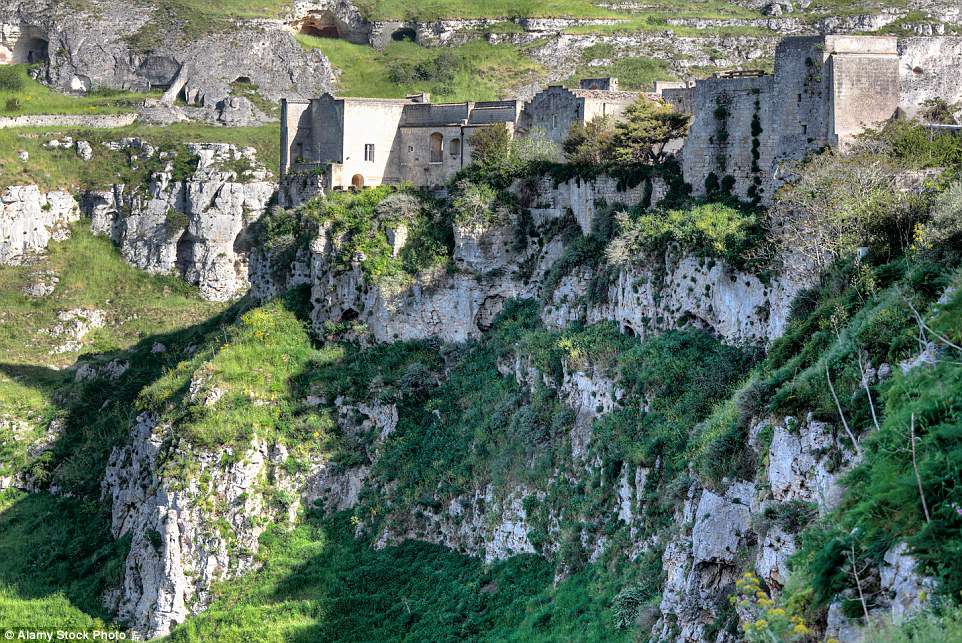
Families at Sassi would live among their animals, diets were simple and disease was rife, with malaria a prominent threat
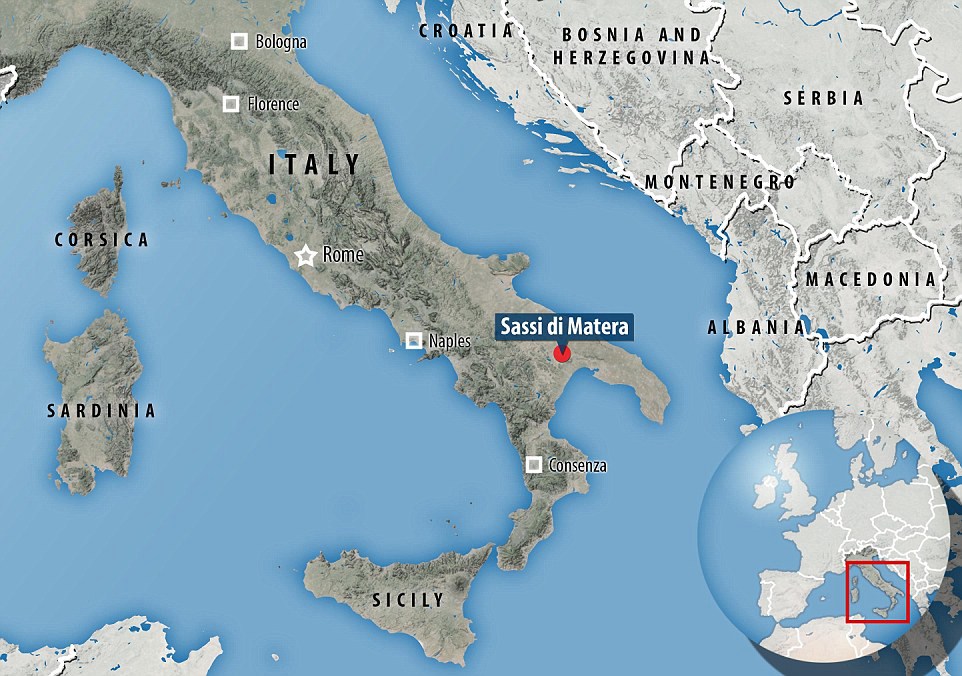
The caves are in the south of Italy, not far from the coast. Tourists flock there to see just why Unesco was impressed
After WWII, cave residents were reluctantly moved from their crumbling homes into more modern abodes in the Matera town on the cliff.
While many of the ancient chambers lie abandoned and forgotten, the settlement's prospects were hugely boosted by Unesco naming it a World Heritage site in 1993.
Several caves have been given a new lease of life and transformed into cosy homes, and hotels and restaurants to cater for waves of inquisitive tourists, eager to find out why Unesco was so impressed.
It is unsurprising that the picturesque caves' timeless surroundings have had their fair share of screen time. The landscape has been used for a range of biblical film and TV scenes including the 2004 Passion of the Christ.
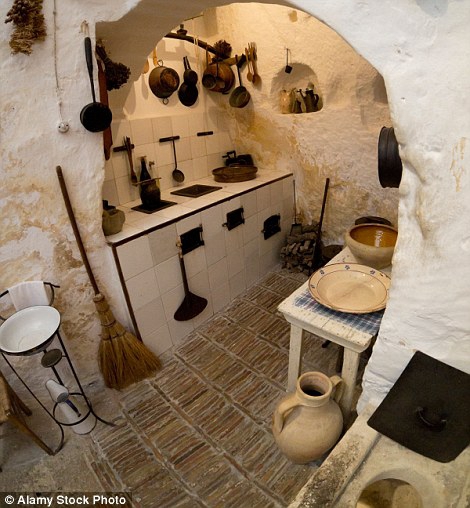
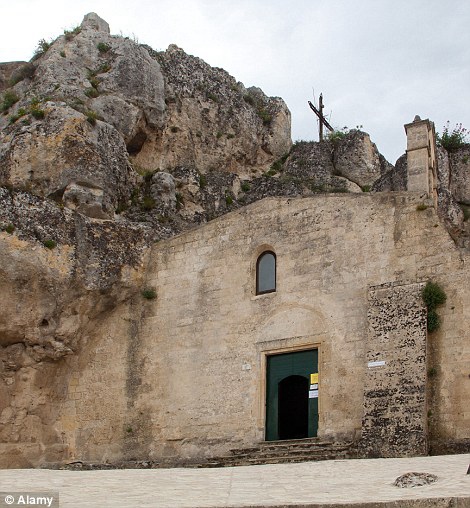
Some of the caves are still used today, with tourists able to see how they've been adapted for themselves
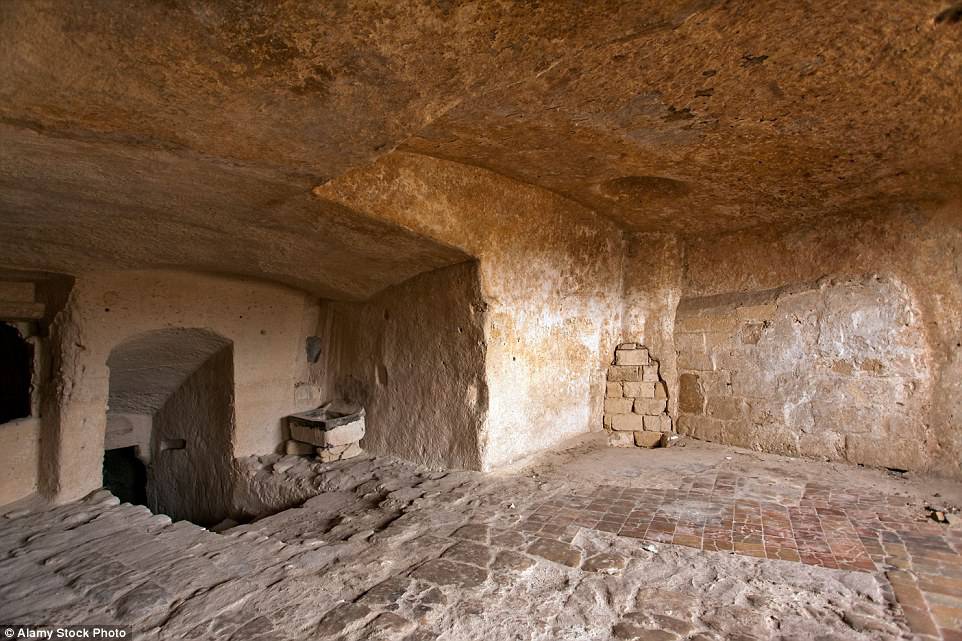
It is unsurprising that the picturesque caves' timeless surroundings have had their fair share of screen time. The landscape has been used for a range of biblical film and TV scenes, including the 2004 Passion Of The Christ
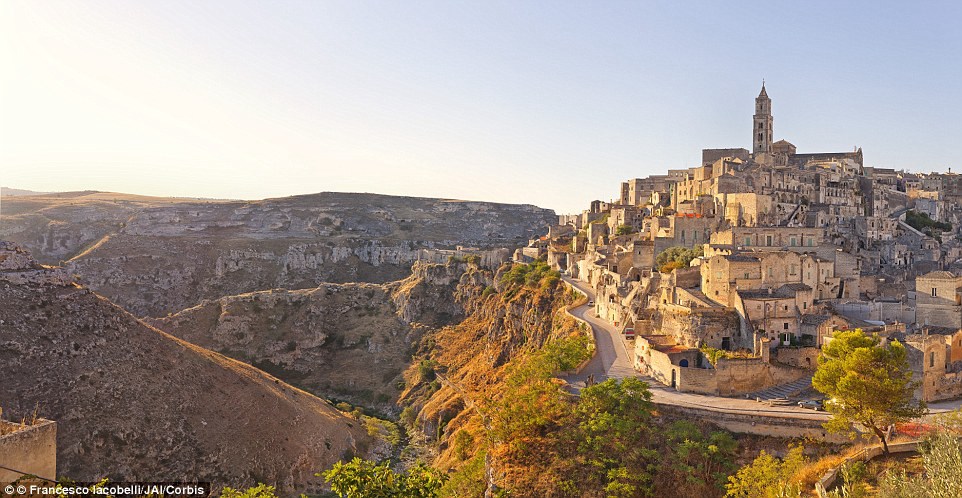
After WWII some cave residents were reluctantly moved from their crumbling homes into more modern abodes in the part of the town that's up on the cliff (pictured)
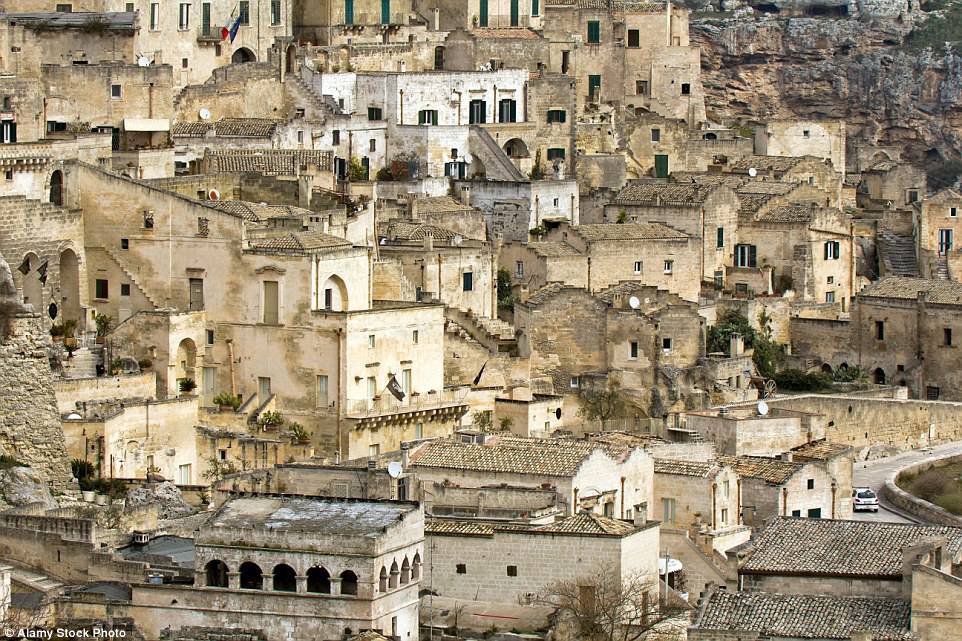
After Unesco named the church caves and Sassi a World Heritage site in 1993 tourists flocked there to see what all the fuss was about
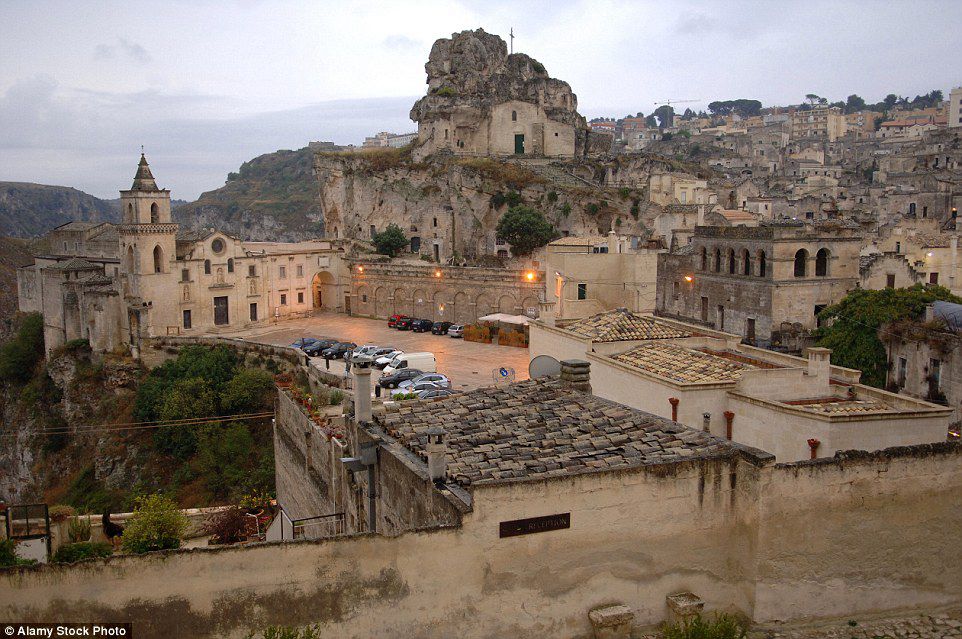
The modern town of Matero features some breathtaking buildings such as the Baroque church of San Pietro Caveoso
Day|Week

 Female official wearing traditional Han costume to promote local tourism
Female official wearing traditional Han costume to promote local tourism Over 12,000 Runners Seek Medical Care in S China’s Marathon
Over 12,000 Runners Seek Medical Care in S China’s Marathon Six Luxury Sports Cars Totaled after Fail Attempts to Cross China’s Most Perilous Highway Linking SW China’s Sichuan and Tibet
Six Luxury Sports Cars Totaled after Fail Attempts to Cross China’s Most Perilous Highway Linking SW China’s Sichuan and Tibet Incredible Transformation: “Witch Child”Whose Parents Left Him for Dead in Nigerian Makes Speedy Recovery
Incredible Transformation: “Witch Child”Whose Parents Left Him for Dead in Nigerian Makes Speedy Recovery Kenyan woman's crappy photoshopped pictures make her a web celebrity
Kenyan woman's crappy photoshopped pictures make her a web celebrity Magnificent view of E. China's Anhui province
Magnificent view of E. China's Anhui province Global landmarks captured in striking shots
Global landmarks captured in striking shots Thailand Elephants Disguised as Pandas Sparks Debates
Thailand Elephants Disguised as Pandas Sparks Debates College girl dresses as mermaid to mark World Water Day
College girl dresses as mermaid to mark World Water Day J-15 fighters in drill on Chinese aircraft carrier
J-15 fighters in drill on Chinese aircraft carrier